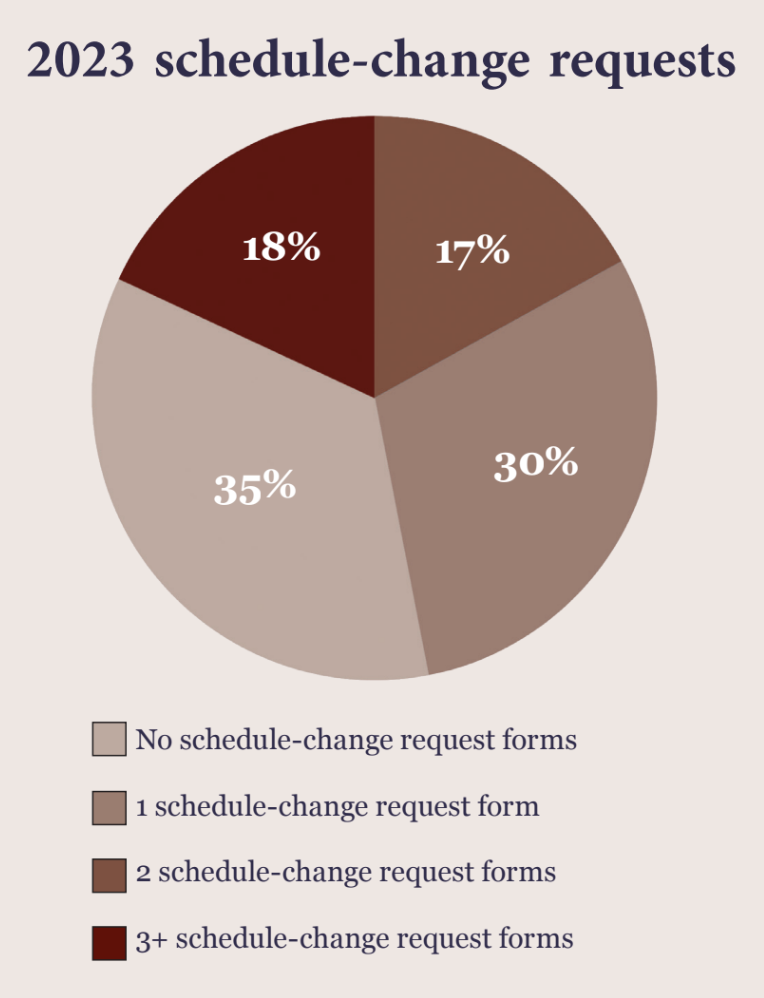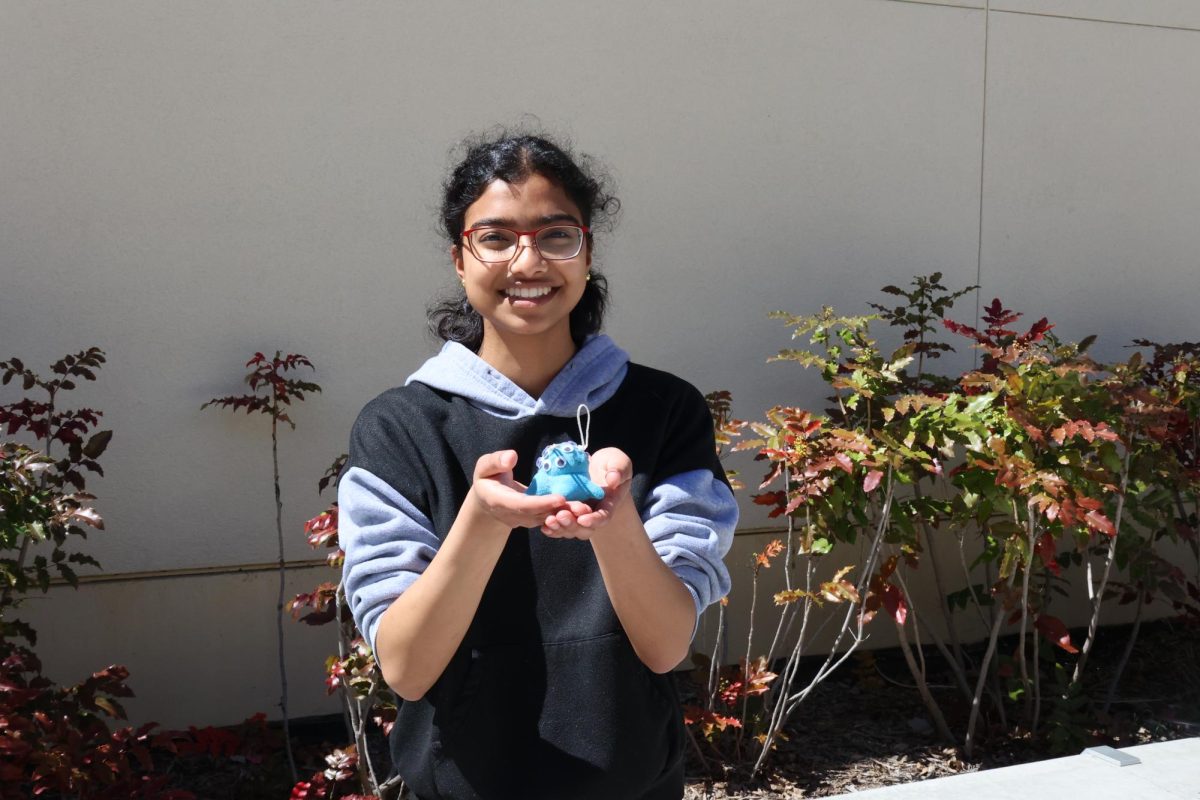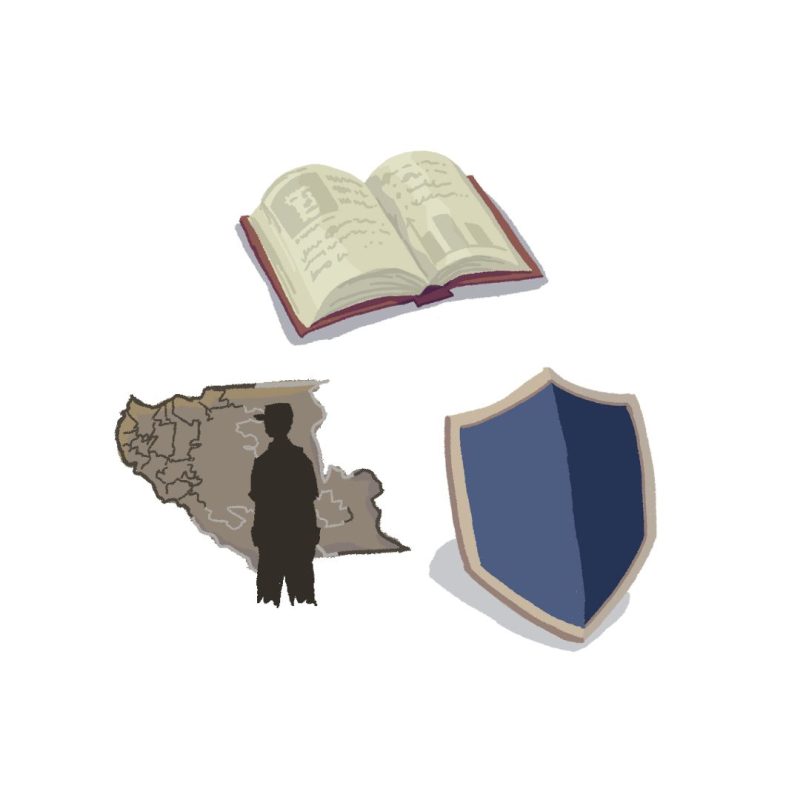This year, Gunn students were met with administrative announcements about schedule changes during their first few weeks of school. Although many students perceived more difficulty in changing their schedules, this year’s scheduling complications paralleled past years’, according to data provided by the counseling department.
Since the 2020-21 school year, the counseling department has enforced a “no email” and “no drop-in” schedule-change policy for the first two weeks of school. They instead provide a Google form for students to specify which classes they wished to substitute others with, drop from or add to their schedules.
Some students went several days without a response from the department, and various upperclassmen — such as junior Jonah Weinstein — were surprised by the difficulty in changing or dropping courses this year. “Although my request was an exception because it did not fall under the form-request reasons, I didn’t expect to wait a week to get a face-to-face meeting,” Weinstein said. “Last year the process was faster for me, and my request was basically identical this year.”
Assistant Principal of Counseling Harvey Newland did not notice a major difference between this year’s scheduling complications and preceding years’. Lead Counselor David Leftwich confirmed that the number of requests this year was not an outlier and that requests were denied or accepted based on the same parameters as past years. Thus, students’ perceived difficulty most likely depended on personal experiences and the number of requests they submitted or received.
One factor that did complicate schedule changes for a limited number of students was over-enrollment in Living Skills, a semester-long PAUSD graduation requirement. With administrative approval, the counseling department offered an online Living Skills course to some students, with each counselor selecting those they felt comfortable offering the course to based on their academic performance and demonstrated responsibility. “Online learning is not for everyone, and counselors wanted to do everything we could to make sure that we were intentional about the students we enrolled online,” Leftwich said.
However, the online classes began several weeks after the beginning of the school year, leaving affected students’ schedules in limbo. “I had already been in my regular Living Skills class for nearly two weeks,” senior Rohan Kancherla, who is now enrolled in the online class, said. “I was called in by the counseling office and was given an option to stay on-campus or take the online version. The whole (switch) wasn’t really an inconvenience, but it did happen completely out of the blue.”
While some students may have experienced longer wait times with changing their schedules, Leftwich noted that the current system is more efficient than the previous one. “(The old) process was cumbersome,” he said. “It involved students’ meeting with their counselors, obtaining a paper form, speaking to instructional leads. Now, (the system) is a straight shot because students don’t have to run all over the place.”
Newland sees the number of schedule changes as a positive indication of student initiative in their academic lives. “It’s always good that we have students who are reaching out and asking questions when they need it,” he said. “As administrators, we want to hear everything, and so having more responses and feedback is not necessarily a bad thing.”

























